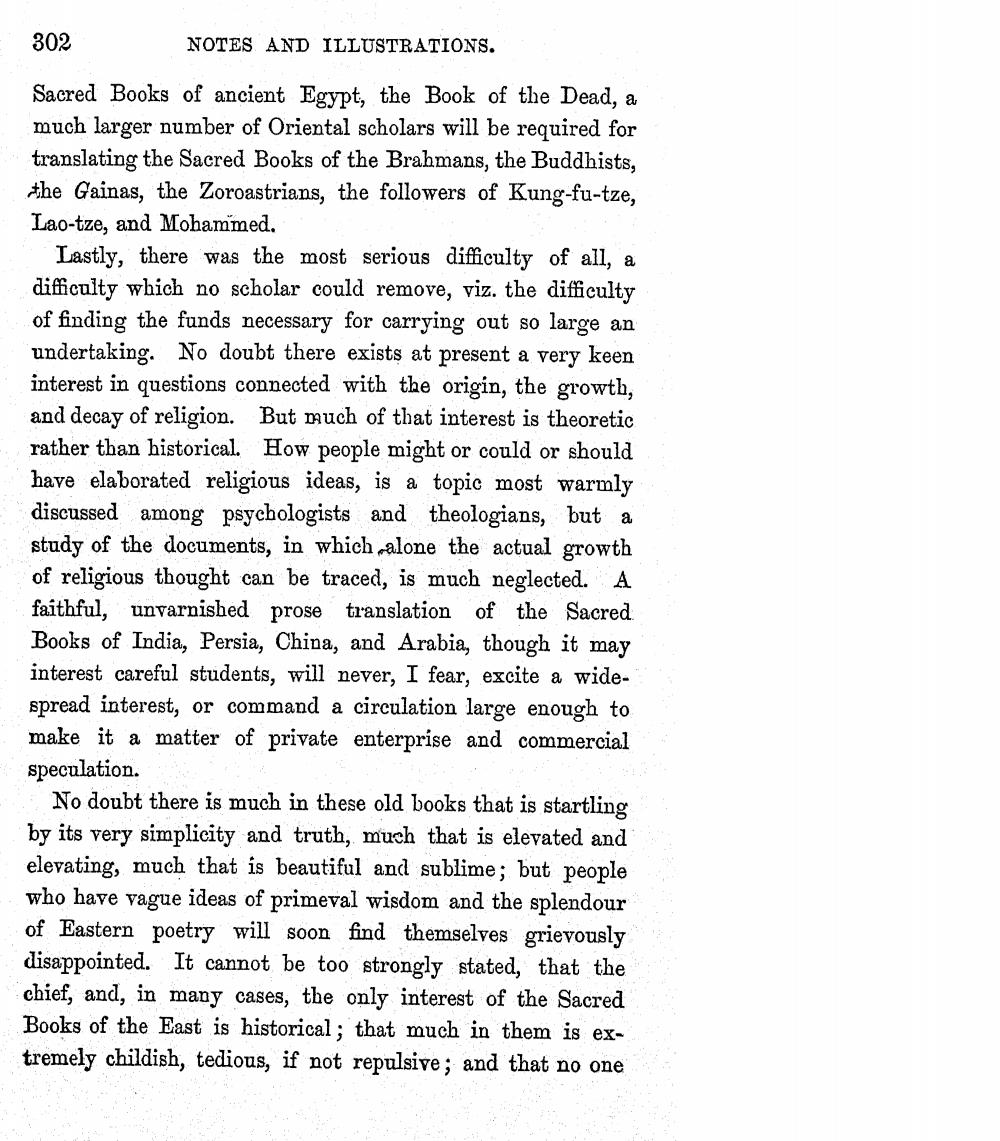________________
302
NOTES AND ILLUSTRATIONS.
Sacred Books of ancient Egypt, the Book of the Dead, a much larger number of Oriental scholars will be required for translating the Sacred Books of the Brahmans, the Buddhists, the Gainas, the Zoroastrians, the followers of Kung-fu-tze, Lao-tze, and Mohammed.
Lastly, there was the most serious difficulty of all, a difficulty which no scholar could remove, viz. the difficulty of finding the funds necessary for carrying out so large an undertaking. No doubt there exists at present a very keen interest in questions connected with the origin, the growth, and decay of religion. But much of that interest is theoretic rather than historical. How people might or could or should have elaborated religious ideas, is a topic most warmly discussed among psychologists and theologians, but a study of the documents, in which alone the actual growth of religious thought can be traced, is much neglected. A faithful, unvarnished prose translation of the Sacred Books of India, Persia, China, and Arabia, though it may interest careful students, will never, I fear, excite a widespread interest, or command a circulation large enough to make it a matter of private enterprise and commercial speculation.
No doubt there is much in these old books that is startling by its very simplicity and truth, much that is elevated and elevating, much that is beautiful and sublime; but people who have vague ideas of primeval wisdom and the splendour of Eastern poetry will soon find themselves grievously disappointed. It cannot be too strongly stated, that the chief, and, in many cases, the only interest of the Sacred Books of the East is historical; that much in them is extremely childish, tedious, if not repulsive; and that no one




